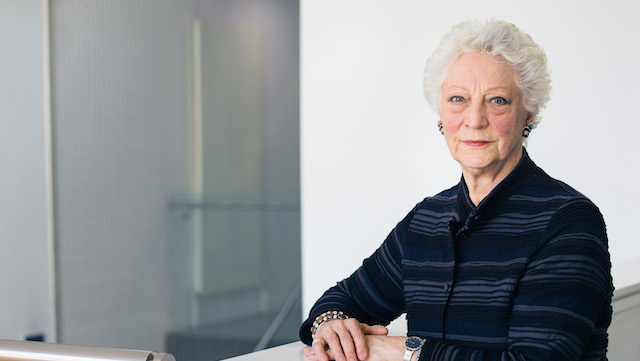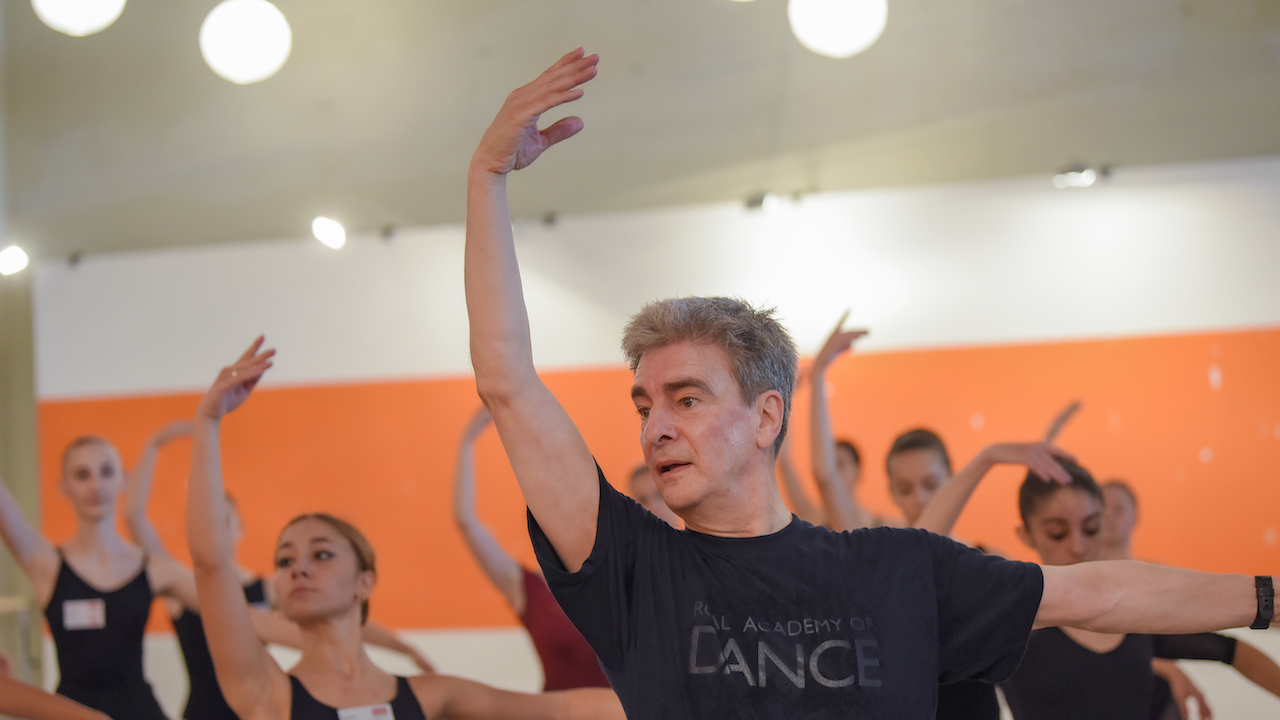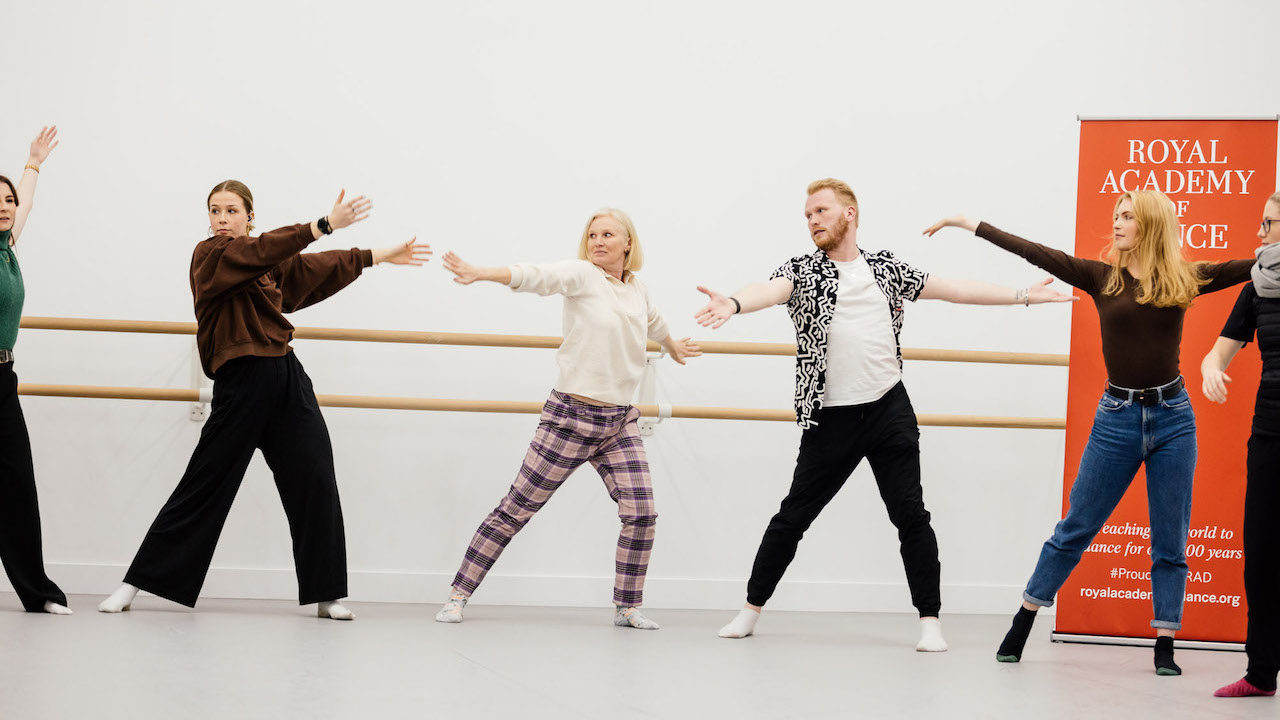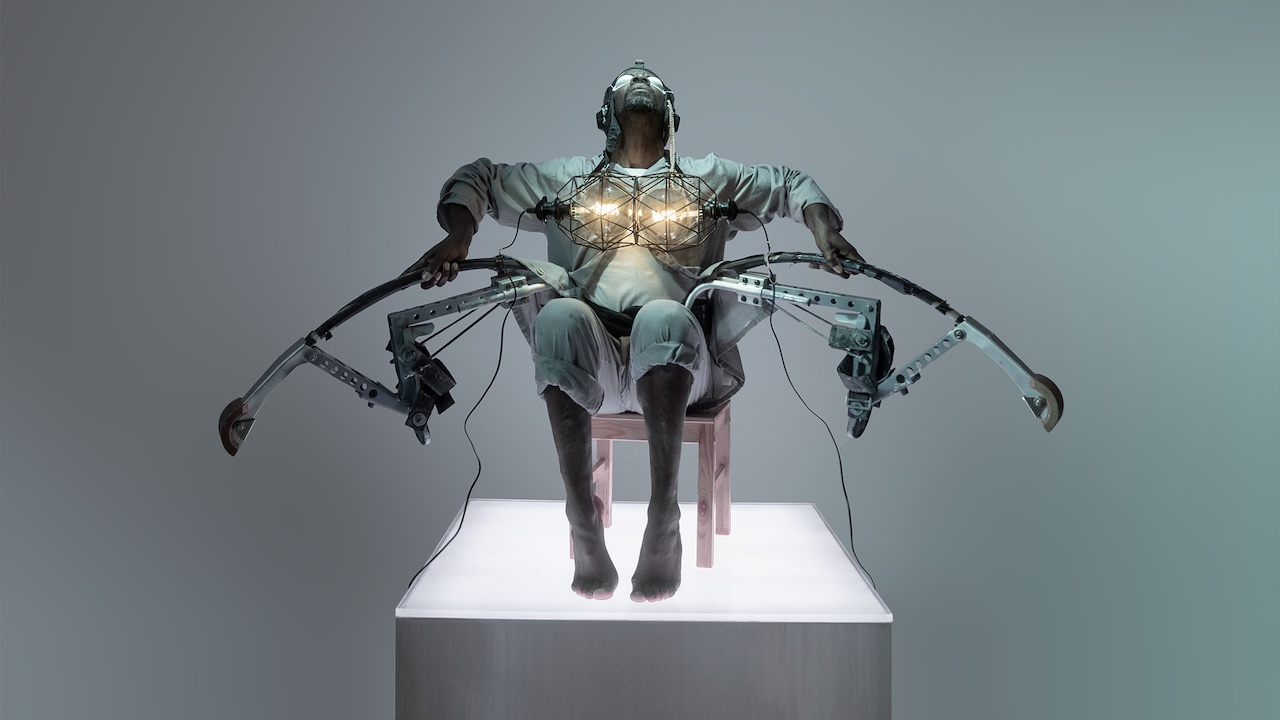Were you daunted when you were appointed to lead Rambert School in 2015?
The school is 103 years old – we celebrated our centenary in 2020, and like the RAD spent a whole year cancelling events during lockdown! I have great respect for our history and tradition, but you can’t live in the past,. There’s a tremendous temptation, when you are offered a big role, to chuck everything away so that you can put your own stamp on it. But it’s important to look at what you’ve got and respect the things that work.
Why is the collaboration with the RAD on Rambert Grades significant?
The RAD was a big part of my training. I did my advanced exam at Battersea – I can still remember the terror going up in the lift! And I remember reading Dance Gazette when I was 13 or 14. The RAD has evolved but still has a very clear progressive structure and an amazing reputation. People trust it.
Contemporary dance is very accessible, inclusive and creative, and Rambert Grades is a completely different system and way of looking at dance. It has solos by Hofesh Shechter and Alesandra Seutin, both cutting edge choreographers. And it has a creative improvisational strand from the earliest years, so it’s about learning and trusting your own creativity. The two systems sit side by side – a student will learn so much from the structure of the RAD ballet syllabus, but also about having confidence in their own ability to express something. We just started talking and found we were aligned in lots of ways. It was a conversation that ended up with this partnership.
How does this breadth of training benefit a dancer?
Nobody these days trains in just one discipline. That broader perspective is vital. For dancers and for all young people, using your imagination, building confidence in your ideas and having a sense of individual expression is vital.
Why did Rambert School move to genderless teaching?
We had been mulling it over for a while. The world changes, and we have students who identify as non-binary. Our students have a voice and we listen to them. But what made it happen fast was covid. It was purely practical: suddenly, our students had to be in small groups or ‘bubbles’, and it made sense for these to be household bubbles, which were mixed gender. It worked really well, and after covid there was no appetite to go back to male/female training. Our students only perform the classical repertory for internal assessment. I only insist that they take it seriously and that it has to be safe. It has worked incredibly well. We love it, we’ll never look back. I always wanted to do the double tours when I was a dancer, I could never understand why they were male steps. I was never particularly fairy-like!
You will be a judge for The Fonteyn this year – what will you be looking for?
Every dancer is different, and I value that fact. Of course, classical ballet is key, but I like to look for expressivity and individuality in a dancer – that extra sparkle. Competitions are hard – how can there be winners or losers when there are so many talented people out there? I have learned to trust my instincts.
What advice would you have for the Fonteyn candidates?
I’m a great believer in flow. When you get into the zone, as athletes call it, nothing else really matters. If you can get into a flow state you’ll enjoy the performance and probably perform your best. Visualise yourself rehearsing and getting ready to go on for the competition. Visualise everything about it. Imagine something going wrong, but that you managed to overcome it. Try not to let that voice of negativity in your head gnaw away – tell yourself, I’ve rehearsed this, I know I can perform well.
What is the best advice you have received?
I started as a dancer and then was a teacher for a long time. Now I have the privilege to be the Director of Rambert School, with a totally different set of priorities. But two things that have stuck with me came from [the choreographer and teacher] Robert Cohan. He was a guru who had many wise words. I remember him talking about the creative process and saying that all you have to do is not get in the way. That sense of stepping back and accepting that it’s not all about you is really important.
And a number of people have taken this from Bob: he said, Teach what you know, not what you don’t know. And teach with love. Because when you teach everything you know, your students will begin to learn and question themselves, and through their questioning, you’ll learn more.
Rambert Grades
Following a successful period in Australia, the Royal Academy of Dance and Rambert Grades are delighted to be expanding their collaboration globally. RAD Registered Teachers will be offered to join Rambert Grades – a progressive and inclusive contemporary dance syllabus. This unique collaboration brings together two world-leading organisations with a shared passion for excellence in teaching practice and a desire to widen access to dance.















